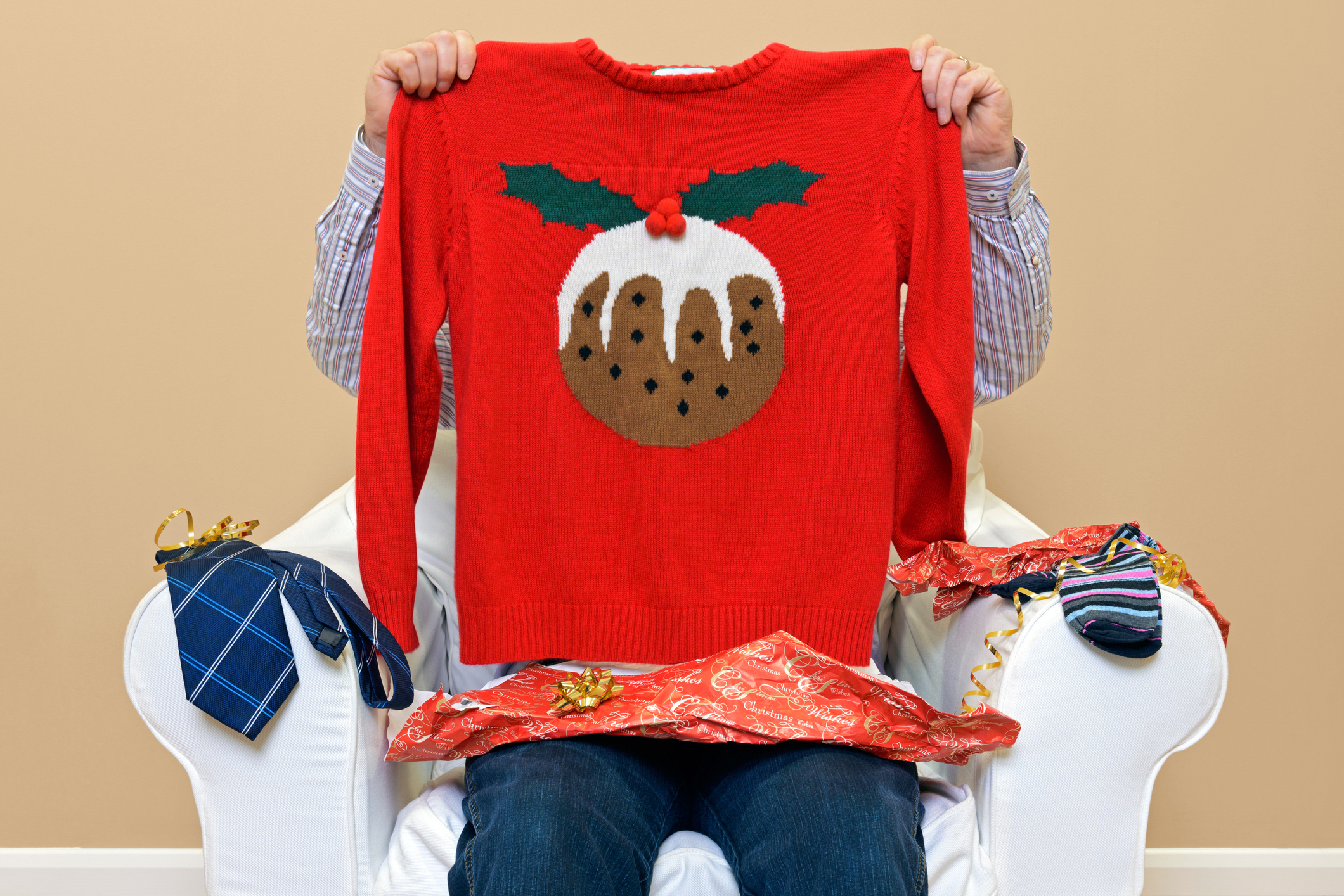
IF someone says: “It’s lovely!” when opening their Christmas gift from you, you’d better double check you’ve hung on to the receipt.
A poll has revealed that 86% of us spare the feelings of others by telling little white lies around the Christmas tree.
That number climbs to 100% when my wife opens her pressies from her sisters.
Every single year.
You’ll probably not be surprised to learn more than half of us put only some of last year’s gifts to good use, while more than a third admit to saying: “This is really useful,” when we actually mean: “This is utter rubbish and will end up as an unwelcome prize at the very next tombola.”
The research, conducted by beauty and grooming brand Braun, was intended to inspire Brits to leave undesired gifts on the shelf and get something for loved ones which will be used all year round.
Good luck with that.
Apparently two-fifths of us prefer useful gifts over novelty items which might only be used once.
Which doesn’t explain my wife’s less-than-delighted reaction to the new set of saucepans I got her last year.
I knew I should have got her that Hoover instead . . .
So if they say: “Thanks so much — I nearly bought this for myself,” deep down they mean: “I wouldn’t have bought this for my worst enemy.”
While exclaiming: “What a lovely surprise!” actually means they simply didn’t know what else to say apart from: “Is this a joke?”
And take note. When someone says: “You shouldn’t have . . .” that’s exactly what they mean.
Almost half of us say we’d rather be asked for our Christmas wish list than get a surprise, suggesting that thinking outside of the box isn’t always the answer.
And a quarter of Brits have sparked an argument with a partner because of presents they’ve been given, despite dropping a number of hints.
A spokesman for Braun says: “There’s always the temptation to have a bit of fun around Christmas, buying friends and family gifts that will make them laugh, but not necessarily something they’ll love.”
When it comes to protecting other people’s feelings, Mum is the person we are most likely to tell little white lies to.
I’m 47, so it’s getting a little embarrassing that she still gets me new boxer shorts for my stocking, and to be honest I haven’t been a “medium” for a while now.
Being frightfully British, 60% of us have felt guilty about how much someone has spent on a gift.
As a result, we have made a point to wear clothes or jewellery in front of their gift-giver despite disliking the purchase.
And be warned, if your gift has been described as “interesting” it most likely means it’s been thought of as “weird”, while if your partner says: “I love it — where did you get it?” they are likely fishing to find out where to return it.
Quick hint. In my opinion, if it has a cork and has the words “single malt” or “Cotes du Rhone” on the label, it’s perfect.

Enjoy the convenience of having The Sunday Post delivered as a digital ePaper straight to your smartphone, tablet or computer.
Subscribe for only £5.49 a month and enjoy all the benefits of the printed paper as a digital replica.
Subscribe